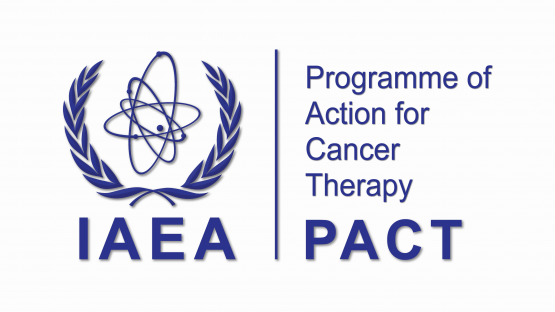As Tanzania's only specialized cancer treatment and radiotherapy centre, the Ocean Road Cancer Institute (ORCI) in Dar es Salaam is leading the country's fight against the dread disease. A recent strengthening of its radiation therapy capabilities, coordinated through the IAEA, has greatly bolstered the hospital's ability to work effectively and quickly, and to treat larger numbers of cancer patients.
Tanzania, population 36 million, has a growing cancer burden of some 35,000 new cases a year. But limited resources means the demand for cancer treatment far exceeds capacity. To help reverse this situation, in 2005 the country was designated one of six PACT Model Demonstration Sites (PMDS). The Ocean Road Cancer Institute is a key stakeholder in this initiative.
Delivering on its aim to work with international partners in helping low-income countries develop effective cancer control mechanisms, PACT provided ORCI with a US$ 750,000 Equinox 80 teletherapy machine, donated by the Canadian company MDS Nordion1. With the support of the IAEA's Department of Technical Cooperation (TC), Africa Division, the complex process of installing the machine, inserting the radioactive source and carrying out crucial tests and checks was successfully completed at the beginning of September.
At the same time, at the request of its Tanzanian partners, the IAEA oversaw and funded the repair of a faulty simulator system at ORCI. A simulator is a key item of equipment in the radiotherapy treatment planning and delivery chain: it helps doctors pinpoint in advance precisely where the radiation beam must be directed, and allows for more effective and time-efficient usage of the main radiotherapy machine. The failure of the simulator at ORCI had placed tremendous pressure on the efficiency and service quality of the unit.
The resulting increase in treatment capacity, with the newly-repaired simulator now feeding two Cobalt 60 radiotherapy machines, should allow ORCI to more than double the number of patients it treats. “Our coordinated support has enabled the Institute to continue providing much needed services,” says Gashaw Wolde, TC Programme Management Officer for Tanzania. “I believe the strengthened capacity will also help place ORCI on a more sustainable footing to serve, improve and innovate for the benefit of the Tanzanian people.”
After months of struggling to treat an ever-increasing number of cancer patients, staff at ORCI are delighted with the increased capacity: “We feel a great sense of joy that this has been done,” says Dr. Twalib Ngoma, Executive Director of ORCI. “There is no doubt that the new facilities will touch the lives of many Tanzanians.”
Tanzania faces a long and uphill journey in its efforts to deliver effective, sustainable cancer care to all people. But, with the support of the government, some progress is now being registered. An inaugural meeting of the steering committee responsible for Tanzania's National Cancer Control Plan took place in August. And with ORCI's treatment capacity now fully invigorated, the country has taken another step forward.
1 As part of a repositioning of MDS Nordion's business, in early 2008 the company sold its external beam therapy and self-contained irradiator product lines to the Virginia-based Best Medical International Inc.


